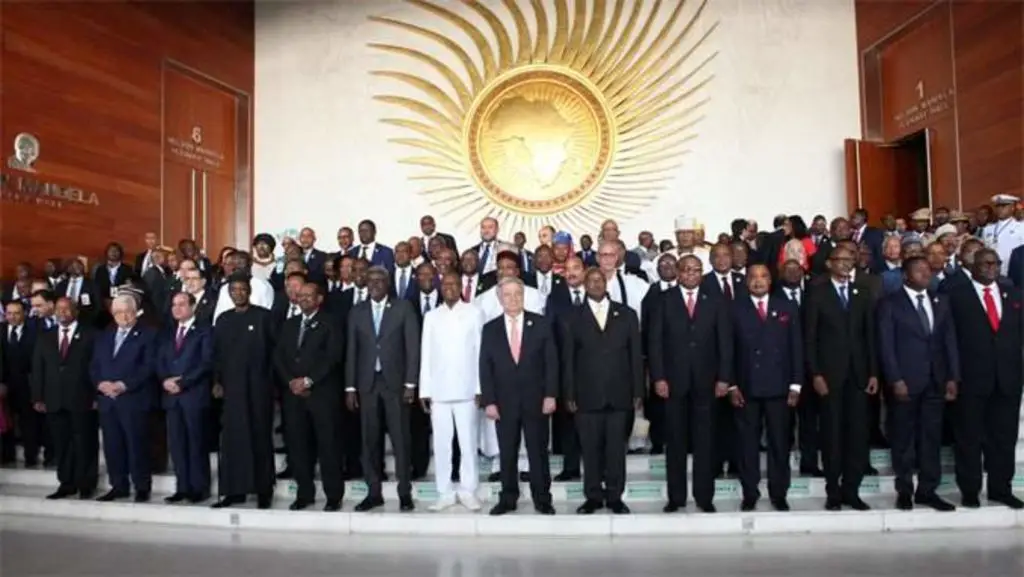- Agribusiness could drive Africa’s economic prosperity
- Dawood Al Shezawi: Why AIM Congress 2024 is the epicenter of global economic and cultural dialogues
- d.light’s 600,000 cookstoves project verified as top source of quality carbon credits
- Artificial intelligence (AI) could create a turning point for financial inclusion in Africa
- AIM Congress 2024: Catalysing global investments with awards
- Kenya’s economic resurgence in 2024
- The most stressful cities to live in 2024 exposed
- Tech ventures can now apply for the Africa Tech Summit London Investment Showcase
Browsing: technology
There is need to regulate the wage amount paid to labourers in Tanzania particularly in the construction industry if the country is to reduce poverty levels and increase professionalism in the sector.
Last month I hired a Dar es Salaam based wage labourer to do some basic construction work for me. As he worked, we ventured into conversation deliberating the working conditions of wage labourers in the country.
‘Richie’ the only name he was willing to offer me, said his regular day starts before dawn.
“I have to wake up before the sun comes up,” he chuckles but maintains a somber look.
“You know, I live in the slums, so I have to get two buses to get to the site,” he continues after a moment of lamentation. According to Richie, as a wage labourer, his job is never guaranteed, as he put it; “at the site, …
More than ever before, Tanzania and the rest of Africa need to employ rain harvesting technology. Global climate changing is drastically affecting weather patterns, rains are heavier or missing completely, droughts in otherwise tropical areas, cyclones and tornadoes ravaging through coastlines. Weather is now less predictable than ever before.
For both economic and social reasons, Tanzania needs to make the best of the rains when they come, Tanzania needs to harvest rain water.
While at national or even city levels, there are some sophisticated equations involved in rain harvesting, like building reservoirs and purification sites, but all in all, the science of rain harvesting technology is not all that complicated at all. It’s a simple three step investment, collect, store and purify.
Since economies rely on water for production and households depend on clean and safe water for daily survivor, harvesting rain water should not even be optional, it should …
When it comes to extractive industries, Tanzania is one of Africa’s richest countries. From minerals to marine resources, Tanzania has it all. It is the World’s only source of Tanzanite, a blue gem said to be 1000 times rarer than diamond. It is home to the highest mountain on the continent and Lake Tanganyika, the World’s deepest lake.
How to manage the extractive industries is an insurmountable task that has seen many countries plunge into endless civil wars. At the center of this strife is a matter of much deliberation but one word can describe the complex mechanisms that are required to efficiently manage the extractive industries, transparency.
Transparency in this case is a very touchy subject after all, who wants to let the world know the details of the 100 years renewable contract that they have signed with a multi-national corporation?
However, that is exactly what transparency demands, stifle …
Coffee production in South America is on a sharp increase and the resulting market flood is severely hurting East African coffee growers.
As supply increases, the market price is steadily falling. For trading blocs like the East African Community (EAC) where coffee is traditionally among the leading export commodities, the lower market prices spell a gloomy period up ahead.
In fact, for most of the East African countries, coffee accounts for 76 percent of the value of all agricultural exports put together. So losing the coffee market is a severe blow to economic development in East Africa and across the continent too.
Sector pundits say South America is using improved hybrids that are growing fast, producing better yields and they also have better after harvest storage and transportation facilities which are important to maintain the quality of the grain.
For example, statistics show that Brazil is now the world’s leading …
The African Economic Outlook 2020 report prepared by the African Development Bank was praised at the 33rd African Union Summit in Addis Ababa for being an effective blueprint for addressing Africa’s human capacity gap.
The 2020 report, under the theme Developing Africa’s workforce of the future, was presented at a side event attended by civil society, policymakers, global and regional development organizations, the media and academia.
“The facts mentioned in the second part of this report are striking. It reminds us of the size of the investment that must be made in the development of human capital in Africa, an essential component for achieving productive transformation,” said Victor Harison, the African Union Commissioner for Economic Affairs.
Also Read: African Economic Outlook indicates steady growth through 2021
The African Economic Outlook has become the blueprint for planning and for sound economic research about Africa said the Secretary-General of the African Development …
Smallholder farmers currently make up 70 per cent of sub-Saharan Africa’s population, contributing some 90 per cent of food production…
Over 25 per cent of Kenya’s insurance industry income is fraudulently claimed leading to insurers incurring heavy losses.
To counter this, Kenindia Assurance has taken steps to curb the fraud by incorporating Artificial Intelligence (AI) in its motor insurance claim processes.
The insurer is utilizing artificial intelligence to fast track its claims resolutions through the use of anomaly detection, sentiment detection, text analytics and a self-service portal.
Integrated Motor Insurance Data System
Kenindia Assurance Deputy General Manager, Joyce Mathenge, says that motor insurance is the main contributor to insurance fraud hence the need to develop mechanisms to lower their risks.
“With more Kenyans owing cars and motor insurance being mandatory, we find that having ineffective due diligence processes and a corruption culture usually leads to motor fraud. We have invested in artificial intelligence as well as continuing training our teams to enhance their abilities to detect motor fraud,” said …
Insurance industry to aggressively embrace technology and help expand access to insurance services…
Even as mobile penetration continue to grow, the East Africa region is still sluggish in technology innovations especially in the insurance sector.
The region is considered as Africa’s Silicon Savannah with a high mobile penetration, home grown digital financial innovations like M-PESA that is now being exported in other countries and a fast growing tech start –up ecosystem.
Statistics indicate that about $63.6 billion is transacted in aggregate in a single year on mobile money platforms in the East African Community (EAC) countries. This corresponds to 46 percent of the total GDP of the EAC in the most recent statistics.
Mobile is a key factor in the region’s start-up ecosystem where many tech start-ups now use the technology as the primary platform to create solutions that address various socioeconomic challenges.
According to the GSM Association, a trade body that represents the interests of mobile network operators globally, over half of …
For the second time, TEDX Oysterbay brought together a diverse range of experts, practitioners, artists, thinkers, visionaries and educators before an idea-thirsty community to the Little Theatre in Dar es Salaam. 12 TEDx speakers with interesting ideas challenging social norms and practices, shared their ideas before an audience of 100 people and many more via social media.
TED is a nonprofit devoted to spreading ideas, usually in the form of short, powerful talks. TED is the convergence of Technology, Entertainment and Design, and today covers almost all topics — from science to business to global issues — in more than 100 languages. Independently run TEDx events help share ideas in communities around the world.
In urban Tanzania, youth now perceive ideas as the new “social currency” for human development. Being the 7th largest economy in Africa and most populous nation in East Africa, human capital development is a vital …











